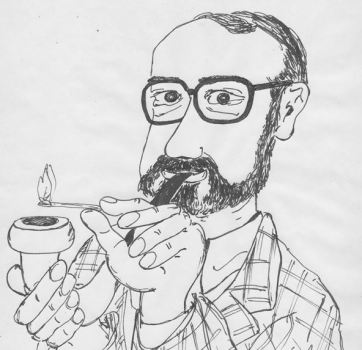Being myself a progressive liberal, I turned immediately to the Revised Standard Version of the Bible as soon as it became available in 1946. Hide-bound conservatives in those days called it the Reversed Virgin because the translation of Isaiah 7:14 (“Behold, a young woman shall conceive”) differed from the hallowed orthodoxy of the King James Version. Nevertheless, and to my surprise, I find that I quote Ephesians 4:32 to myself from the King James Version: “Be ye kind one to another.” Kindness is supposed to be one of the defining characteristics of God’s chosen ones (Colossians 3:12).
The more I read around in the great novels of Charles Dickens the greater is my delight. The more I read about the great man himself the greater is my sorrow. Like most of us, Dickens could be kind, but he was also very cruel. Even in my most generous judgment there is a distressing gap between the life and work of Dickens. I occasionally wonder what I would have done if I had been his pastor and therefore responsible for him and to him.
The most obvious issue pertains to his wife of 22 years (and the mother of his 10 children). Rich and famous at age 46, Dickens put Catherine aside and took up with Ellen Ternan, an 18 year old actress. This sordid little affair is all too human and all too common. It is naturally (if not morally) explained in David M. Buss, The Evolution of Desire: Strategies of Human Mating.
More interesting and challenging is the uncommon Dickens of a problem concerning Maria Beadnell. Just into his twenties Charles Dickens fell wildly in love with a girl named Maria. Her name was like the sound of music. It was another West Side Story. Seldom has a young swain combined a nature so passionate and so articulate. Dickens star-crossed, pain-filled, and doomed love for Maria Beadnell was later and forever spread before the world in his thinly disguised autobiography. David Copperfield (DC) and Charles Dickens (CD) – we all get it.
In Dora Spenlow, Dickens painted a portrait of Maria Beadnell as every young boy’s adorable, unsuitable, and forever lost first love. Sadly, Charles Dickens, unlike David Copperfield, never found his Agnes Wickfield, so true, so beautiful, so good, “the better angel of my life” (Chapter 60). Maria’s parents judged young Charles too poor in purse and prospect to be considered as a serious suitor for their daughter’s hand. Their budding relation was broken off and Maria returned all Charles’ letters. But not before making copies – presumably for the nostalgic feminine pleasure of an occasional hop around on a young man’s bleeding heart.
During the ensuing years, Dickens became rock-star famous, and Maria, now married and motherly, got back in touch with her old admirer, rekindling his almost inexpressible delight. In the first blush of his enthusiasm to meet her again, Charlie forgot that, while he would be looking with essentially the same eyes, the woman he would see was twenty years different. Her youthful enchantment had entirely disappeared. To his dismay and disgust, Dickens found Maria Beadnell to be fat, forty, flighty, and finally foolish. He wanted nothing to do with her. And some years later rejected her request for help when her husband’s business failed.
Except for profound theological conviction, nothing seems to be beyond Dickens’ ability to describe. He skewers poor Maria on a spit and roasts her to a turn both rare and well done. The boy-lover, David Copperfield, now grown up appears as Arthur Clennam in Little Dorrit. Maria Beadnell reappears as Flora Finching. The description could hardly be more glorious as literature, and it could hardly be more brutal as reality. Even Flora’s noble characteristics just make her silly ones the more devastating. Dickens could never be charged with fawning over Flora.
Most of us rightly oppose the gratuitous infliction of grief on any person. Nevertheless, I think I would advise my parishioner, Charles Dickens, “Life is short, but art is long. Your depictions of Flora and Dora are among the most precious treasures of English literature. That they refer to the same, living woman will soon be covered by the scab of history.”
“And, for the dear old times’ sake, Charlie, be ye kind. Send her the money she needs.”
